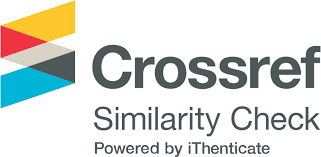The Psychology of Conflict and the Promotion of a Culture of Acceptance of the Other
Psychological Vision
DOI:
https://doi.org/10.59743/Keywords:
Psychology of conflict, the other, the culture of accepting the other, a psychological visionAbstract
The Aim: of the current research paper is to shed light on the nature, dimensions and nature of conflict, to come up with an analytical psychological vision that is useful in understanding the psychology of conflict, and the mechanism of dealing with it by promoting a culture of acceptance of the other. Importance: of our research Understand the nature cultural and intellectual heritage of society, considering the conflict as a common psychological and social phenomenon, and the researcher tried to answer the following main Questions: (What are the theoretical foundations of conflict psychology? What are its dimensions and effects on the culture of acceptance of the other?), and the sub-questions that emerged from it: What is the conflict and its dimensions as a complex phenomenon? What is the nature of conflict and its causes as a concept, phenomenon and a complex process? What are the levels and types of conflict as a multi-faceted phenomenon? The acceptance of the other and what are his rights? and what is the importance of the culture of acceptance of the other, its goals, and its motives? What are the factors of promoting the culture of acceptance of the other, as opposed to its obstacles?, Approach, the researcher will use the descriptive-analytical approach as it provides a good explanation of the facts and information related to the topic of the research paper, The important Results are: that difference and diversity are something natural to which human beings are born, that one of the most important causes of conflict sometimes is the feeling of superiority and superiority over others, that the absence of a culture of accepting others in any human society means the spread of conflict and fanaticism, and the prevalence of a mentality of treason and exclusion, and that the highest goal of a culture of accepting others is to search for the truth that is disputed.
Downloads
References
1. القرآن الكريم.
2. ابن منظور، محمد جمال الدین (1420هـ): لسان العرب، دار صادر، بيروت.
3. أبو حطب، فؤاد & عثمان، أمال (1996). مناهج البحث وطرق التحليل الإحصائي في العلوم النفسية والتربوية والاجتماعية، ط2، مكتبة الأنجلو المصرية، القاهرة.
4. أبو قحف، عبد السلام (1999): التنافسية والصراع على القمة، مكتبة الإشعاع، بيروت.
5. أبو نمر، محمد (1994). تحليــل الصـــراع، المركز القومي لدراسات الشرق الأوسط، القاهرة.
6. حجاب، محمد (1987): الفكر التربوي في الإسلام بین الوحدة والتنوع، المؤتمر العالمي الخاص للتربیة الإسلامیة، المركز العام لجمعیات الشباب المسلمین العالمیة، ج (2)، القاهرة.
7. حجازي، أحمد مجدي (1998): علم اجتماع الأزمة، تحليل نقدي للنظرية الاجتماعية في مرحلتي الحداثة وما بعد الحداثة، دار قباء، القاهرة.
8. حسن، میرفت عبد الحمید (2004): تقبل الآخرین في التربیة الإسلامیة، رسالة ماجستیر غیر منشورة، كلیة الشریعة، جامعة الیرموك، عمان.
9. رسلان، أحمد فؤاد (1986): نظرية الصراع الدولي.. دراسة في تطور الأسرة الدولية المعاصرة، الهيئة المصرية العامة للكتاب، القاهرة.
10. شحاته، عبدالمنعم محمود (2012): أنا والآخر.. سيكولوجية العلاقات المتبادلة، دار ايتراك، القاهرة.
11. صدقي، محمد عامر (2012): التسامح والإخاء الإنساني في الإسلام، سلسلة قضایا إسلامية، ع 203، المجلس الأعلى للشئون الإسلامیة، القاهرة.
12. عبد الجواد، مصطفى خلف (2009): نظرية علم الاجتماع المعاصر، ط1، عمان، دار المسيرة.
13. على، سعید (2000): القران الكريم.. رؤبة تربوية، دار الفكر العربي، القاهرة.
14. عيشور، نادية سعيد (2019): الصراع الاجتماعي والاتجاهات التنظيرية.. التقليدية والسوسيولوجية، دار مجدلاوي للنشر والتوزيع، عمان.
15. الجابري، محمد عابد (1994): المسـألة الثقافية، ط1، مركز دراسات الوحدة العربية، بيروت.
16. الخطیب، إبراھیم، والزیادي، أحمد (2001): مفاهيم أساسية في التربية الإسلامية والاجتماعية، الدار العلمية، عمان.
17. العمارى، عباس رشدى (1993): “إدارة الأزمات في عالم متغير”، مركز الأهرام للترجمة والنشر، القاهرة.
18. الكیلاني، شمس الدین (2010): الحوار.. ثقافة التسامح، بیت الحكمة للنشر، بغداد.
19. محفوظ، محمد (2005): معنى التسامح وآفاق السلم الأهلي، بغداد، مركز دراسات فلسفة الدين.
20. المشاط، عبد المنعم وخليفة، ماهر (1995): تحليل وحل الصراعات.. الإطار النظري" المركز القومي لدراسات الشرق الأوسط، القاهرة.
21. مقلد، إسماعيل صبري (1991): “العلاقات السياسية الدولية.. دراسة في الأصول والنظريات” القاهرة، المكتبة الأكاديمية.
22. موسى، عبد الفتاح تركي (1998): التنشئة الاجتماعية. منظور إسلامي، المكتب العلمي للنشر والتوزيع، الإسكندرية.
23. موسی، رشاد (2011): أساسیات الصحة النفسية والعلاج النفسي، مؤسسة المختار، القاهرة.
24. موكیوس، أنتاناس (2002): التعایش كتوافق بین القانون والأخلاق والثقافة في التعلیم من أجل العیش معا، مجلة مستقبليات، القاهرة.
25. وهبان، أحمد (1997): الصراعات العرقية واستقرار العالم.. دراسة في الأقليات والجماعات والحركات، دار الجامعة الجديدة، الإسكندرية.
26. Boulding, Kenneth E.(2001): “ Organization and Conflict,” Journal of Conflict Reolution, 2001, Vol. 1: p 111-121.
27. Burton, J. W.(2007): “ World Society” , Cambridge & New York: Cambridge University press, 2007, pp. 137-138 Quoted in Sandole and Merwe (eds) ,1993: p.6.
28. Coser, Lewis A.(2005): “Conflict: Socail Aspects “, in (International Encyclopedia of the Social Sciences), IESS, edited by David L. Sills, The Macmillan Company and the Free Press, Vol. 3 , pp.232-233
29. Ho-Won, Jeong (1999): "Research on Conflict Resolution", pp. 3-34, in Jeong, Ho-Won: Conflict Resolution: Dynamics, Process and Structure, Ashgate Publishing Ltd, England
30. Murray, Edward J. (2009): “Conflict: The Psychological Aspects “, in (International Encyclopedia of the Social Sciences), (Later refferd to as IESS), edited by David L. Sills, The Macmillan Company and the Free Press, Vol. 3., pp. 220 –225
31. Nader, Laura (2005):” Conflict: Anthorpological Aspects”, in IESS, pp236-237.
32. Sandole, Dennis J, (2003): “Paradigm, Theories, and Metaphors in Conflict and Conflict Resolution: Coherence or Confusion?” in “Conflict Resolution: Theory and Practice.” edited by Dennis J. Sandole and Hugo van der Merwe, Manchester and New York: Manchester university press, 3-24, pp.6-7.
Downloads
Published
Issue
Section
Categories
License
Copyright (c) 2024 Journal of the Academic Forum

This work is licensed under a Creative Commons Attribution-NonCommercial-ShareAlike 4.0 International License.




